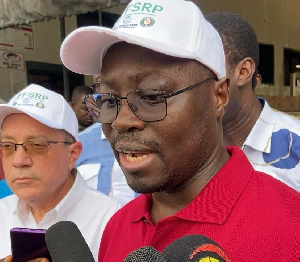Kwasi Gyan-Apenteng
It cannot be easy being a Fulani in Ghana today. Perhaps, the only worse situation is being a homosexual Fulani herdsman in Agogo! In the last few months Fulani herdsmen have taken the place in our imagination usually reserved for witches and other evil doers; not even the arrival of homosexuals as number one hate objects has shifted the focus away from these people, who in other circumstances should be called our brethren. The amazing thing is that despite them being such objects of disgust, the majority of Ghanaians know so little about the Fulani; I think we have an obligation to know a bit more about our declared national enemy.
So who are the Fulani? Where do they come from? How did they get here? What do they want here? More importantly, what does their presence here tell us about ourselves? Most Ghanaians believe that “Fulani” is synonymous with “cattle farmers”, which is why in some Ghanaian communities every cattle farmer is described as a called “Fulani”. This term has been used to describe even Ghanaian cattle farmers who are also pastoralists and drive their cattle over long distances in search of pasture.
The Fulani, as their name implies are FULA people who today are spread in several West African countries although they are concentrated principally in Nigeria, Mali, Guinea, Cameroon, Senegal, and Niger. The Fulani language, known as Fula, is classified within the Atlantic branch of the Niger-Congo language family. Needless to say, Fulani are a people and not a form of employment, in the same way that “Asante” cannot be just another name for, say a cocoa farmer. Interestingly, in some African countries, such as Liberia, the term “Fante” refers to fishermen and women fish sellers.
Today’s Fulani come from a very ancient and proud people and culture; their forebears created an empire that stretched across present day West Africa. Indeed, the Fulani Empire could be the ECOWAS of our dreams because it created a political and economic network the like of which has never been seen in the sub-region in modern times. The great Fulani leader Usman dan Fodio exerted the biggest influence on the development and direction of Islam in West Africa. By establishing the Sokoto Caliphate, the Imam also left a legacy that has had direct impact on the political, economic, social and cultural developments in West Africa, most notably in Northern Nigeria.
Needless to say, not all Fulani are into cattle rearing although that particular occupation defined their culture in the past and continues to do so to this day; their lives and organisation are dominated by the needs of their herds. However, as with all peoples, there are Fula doctors, engineers, teachers, drivers, journalists and indeed cattle rearers, and their culture has produced its fair share of the artistic and cultural heritage of our sub-region.
Fulani architecture, engraving, leatherwork, textiles and other forms of art expressions are found throughout West Africa, and as can be expected of a nomadic culture, the Fulani have spread their culture in the places where they have settled, typically in Northern Nigeria where Fulani cultural influence on the Hausa is most noticeable, even if it can be argued that the Hausa have also largely assimilated the Fulani.
So, instead of seeing the Fulani as a malevolent sub-cultural species here to disturb our peaceful way of life, we should regard them as our neighbours whose forebears have interacted with our forefathers and foremothers for centuries. It has to be pointed out that there are Ghanaian Fulani in the same way that there are Ghanaian British people in the world. We all start from somewhere and end up somewhere because we are like several little streams with one purpose, which is to move towards the sea. Far from being devils with horns and tails, they are our own people also in search of bread and water, especially the latter.
The Fulani being pastoralists travel everywhere they can find fresh pasture for their herds, whose needs come first. It has been remarked that a Fulani will ensure the comfort of his cattle before he seeks his own. This is often misunderstood, sometimes deliberately, in order to cast the Fulani as being subhuman in some way. In fact, most sedentary famers treat their crop farms in the same way; for example when their crops are threatened by pests, some farmers stay up all night every night just to scare them away in order to protect their crops.
It is this desire to nurture their cattle that has brought the Fulani to our lands, and there is a powerful lesson which is being lost. Seasonal southern migration of the Fulani and their cattle is not new. When I was a boy they used to come every year together with their itinerant soothsayers popular know in southern Ghana as “aduro-aduro”. They always went back once the rains started wherever they came from. What is new is the new type of Fulani that has gone into sedentary cattle farming in parts of Ghana. It is telling us something very significant.
Overgrazing of dry lands is one of the main causes of desertification, and together with overpopulation and climate changes can cause irreversible decline in the quality of land. This process has been going on in the Sahel countries for many years, and the fact that the Fulani are not going back and forth seasonally means that there is nothing for them to return to, in terms of pasture for their cattle. This is the fate that awaits us if we don’t wake up and smell the cattle dung.
The story and lesson that we need to take from the Fulani-Agogo saga is not the national security-implicated one that is currently on the agenda. In fact, when the dust settles and we learn the lesson, perhaps too late as it might turn out to be, we will realize that rather than demonise the Fulani we should have thanked them for foreshadowing the disaster to come.
I know what I am talking about. In 1994, the Panos Institute in London commissioned me to write a Panos Briefing Papers on desertification and they later arranged for me to present the paper at a UNESCO conference in Paris. Later, the Paper was used as the basis for a regional media workshop on desertification in Harare. The main lesson I learnt from that very important experience is that desertification does not mean the desert is either “coming down” or expanding, but rather that desert-like conditions are being created in forest areas. Among the maim indicators of the process is the movement of nomadic peoples.
As for the activities of the Fulani, or any other herdsmen roaming the Agogo countryside or elsewhere, no one would disregard the damage the unauthorised and inappropriate herding has done to large tracts of land in Ghana. There are instances when herdsmen are said to have burnt whole farms just to clear the land of crops in order to find pasture for their cattle. There have been reports of rapes, pillage and murder; none of these atrocities endears the cattle rearers to their farming neighbours but the media condemnation of a whole people cannot be a substitute for bringing the INDIVIDUAL offenders to justice.
It appears that the word “Fulani” itself has become a byword for criminal behavior without differentiating between people’s behaviour as individuals. People of a certain age would recall that some 25 or 30 years ago, Nigerians used to refer to Ghanaians as “thieves” just because of the activities of a few of our compatriots in Agege and other Lagos slums. “Omo Ghana, Ole!” usually was the signal for a very cruel lynching of any Ghanaian in sight. We didn’t like it.
gapenteng@hotmail.com
kgapenteng.blogspot.com
Opinions of Friday, 18 November 2011
Columnist: Gyan-Apenteng, Kwasi














